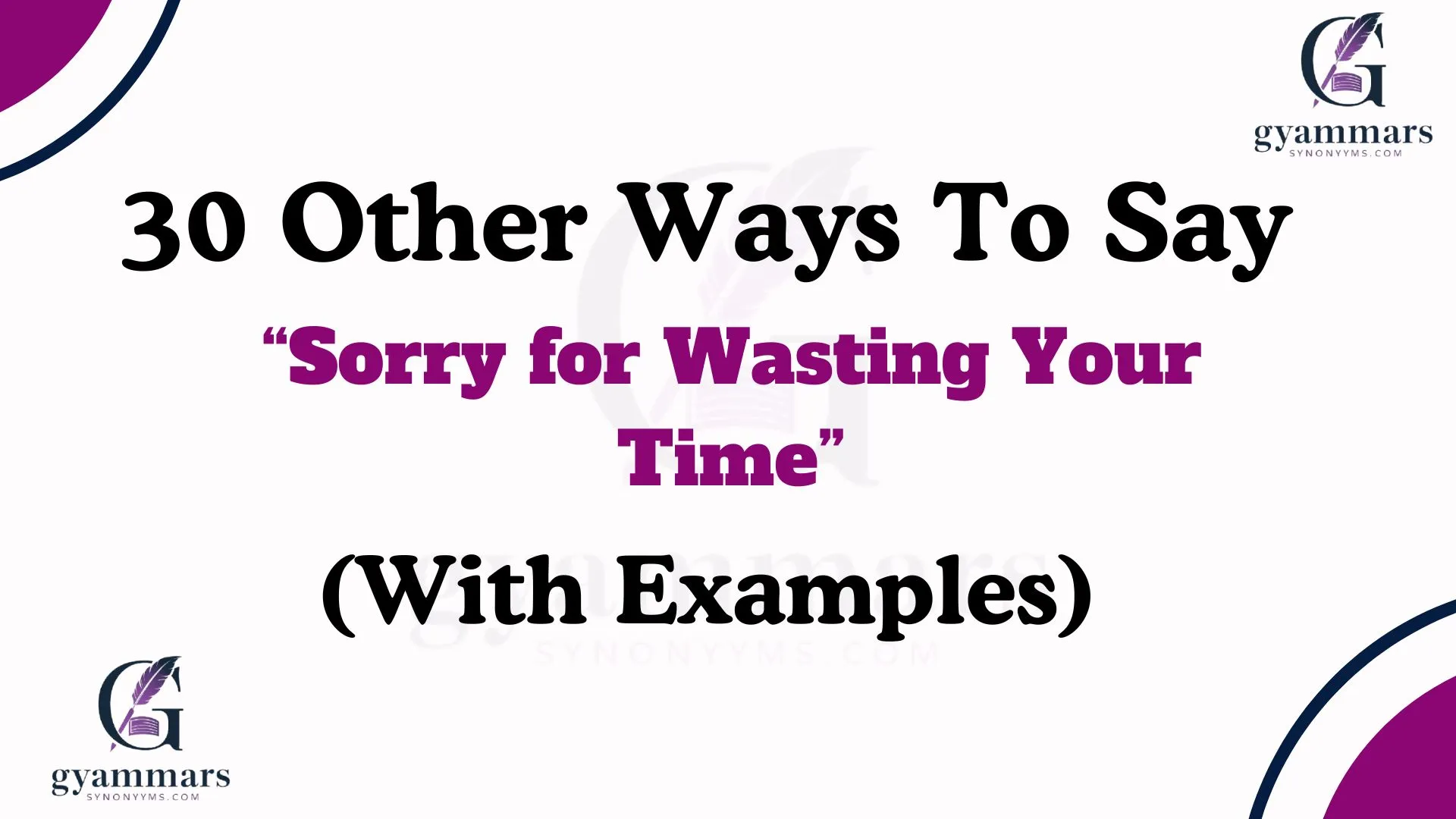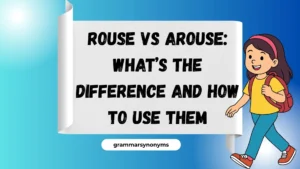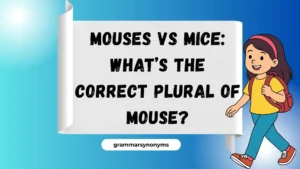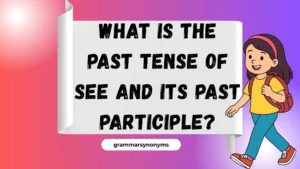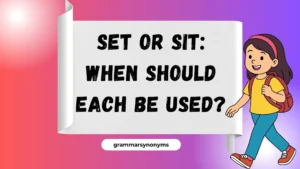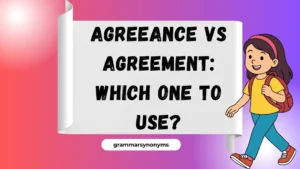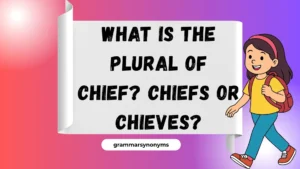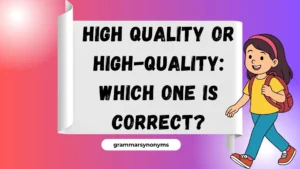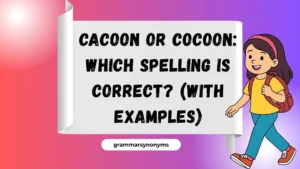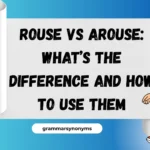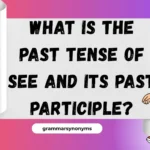Finding the right words to express genuine care and respect can make all the difference in how your message is received. Instead of a simple “Sorry for wasting your time,” using a more thoughtful and warm phrase can show sincerity, appreciation, and professionalism. Whether you’re apologizing to a colleague, friend, or client, these alternatives help ensure your message feels personal and meaningful.
What Does “Sorry for Wasting Your Time” Mean?
The phrase “Sorry for wasting your time” is used to acknowledge that you’ve taken up someone’s valuable time without providing something useful or beneficial in return. It expresses regret and aims to show that you respect the other person’s schedule.
However, in many cases, this phrase might come across as too formal, too harsh, or self-deprecating. Choosing an alternative that aligns with the situation and relationship can make your apology sound more genuine and considerate.
Is It Professional/Polite to Say “Sorry for Wasting Your Time”?
Saying “Sorry for wasting your time” can be seen as polite and self-aware, but it depends on the context. In professional settings, you might want to soften the phrase a bit to make it sound more constructive. Instead of directly apologizing for “wasting” someone’s time, consider expressing appreciation for their time or acknowledging the situation more diplomatically.
Here are some alternatives that might sound more professional:
- “I appreciate you taking the time to discuss this.”
- “Thank you for your patience with this matter.”
- “I hope this hasn’t taken up too much of your time.”
- “I apologize for any inconvenience this may have caused.”
These alternatives maintain professionalism while still acknowledging any potential concerns about time.
Pros and Cons of Saying “Sorry for Wasting Your Time”
| Pros | Cons |
| Shows respect for others’ time | Can sound too formal or harsh |
| Acknowledges potential inconvenience | Might make you seem overly apologetic |
| Works well in business settings | Can be replaced with warmer, friendlier options |
Synonyms For “Sorry for Wasting Your Time”
- I Appreciate Your Time and Patience
- I Regret Taking Up More Time Than Necessary
- I Apologize for Any Inconvenience This May Have Caused
- I Didn’t Mean to Take Up So Much of Your Time
- Thank You for Your Time – I Truly Appreciate It
- I Hope This Wasn’t Too Much of a Disruption
- I Regret Any Unnecessary Delay I’ve Caused
- I Appreciate Your Understanding in This Matter
- I Didn’t Intend to Hold You Up
- Thank You for Your Patience With Me
- I Apologize for Not Being More Efficient With Our Time
- I’m Sorry If I Took Up More Time Than Expected
- I Appreciate Your Time and Effort
- I Understand That Your Time Is Valuable, and I Apologize
- I Hope I Haven’t Kept You From Anything Important
- I’m Grateful for the Time You’ve Given Me
- I Hope This Didn’t Cause Any Inconvenience
- I Regret Any Time I Took That Could Have Been Spent Elsewhere
- Thank You for Your Generosity With Your Time
- I’m Sorry If This Conversation Ran Longer Than Planned
- I Appreciate Your Willingness to Listen
- I Didn’t Mean to Take So Much of Your Attention
- I Apologize for Any Disruption This May Have Caused
- Thank You for Bearing With Me on This
- I Apologize for Not Making This Quicker
- I Truly Appreciate Your Time and Consideration
- I Hope This Was Still Valuable for You
- I Apologize If This Felt Like a Waste of Time
- I Appreciate the Opportunity to Discuss This With You
- I’ll Be More Mindful of Time Moving Forward
1. I Appreciate Your Time and Patience
Definition: A warm and positive way to acknowledge someone’s patience and time.
Explanation: Instead of focusing on wasting time, this phrase expresses gratitude for their patience.
Scenario Example:
“Thank you for your time and patience during our discussion. I truly appreciate it!”
Best Use: Ideal for professional and formal settings where you want to show gratitude.
Tone: Warm, appreciative, and professional.
Additional Notes: Works well in emails, meetings, and business conversations.
2. I Regret Taking Up More Time Than Necessary
Definition: A more formal way to express regret for spending too much time.
Explanation: This alternative acknowledges the time spent while keeping it respectful.
Scenario Example:
“I regret taking up more time than necessary. I’ll be more mindful in the future.”
Best Use: Suitable for corporate and executive settings.
Tone: Professional, serious, and responsible.
Additional Notes: Best used when addressing senior colleagues or clients.
3. I Apologize for Any Inconvenience This May Have Caused
Definition: A professional and courteous way to acknowledge any disruption.
Explanation: This phrase keeps the focus on the impact rather than just apologizing for time wasted.
Scenario Example:
“I apologize for any inconvenience this may have caused. I truly appreciate your patience.”
Best Use: Ideal for customer service, corporate emails, and formal apologies.
Tone: Polite, respectful, and professional.
Additional Notes: Works well in situations where you might have unintentionally caused a delay.
4. I Didn’t Mean to Take Up So Much of Your Time
Definition: A direct but considerate way to express regret.
Explanation: This alternative keeps the apology concise and to the point.
Scenario Example:
“I didn’t mean to take up so much of your time today. I appreciate you listening!”
Best Use: Useful in casual and business conversations.
Tone: Friendly, apologetic, and appreciative.
Additional Notes: Works well when talking to colleagues, mentors, or team members.
5. Thank You for Your Time – I Truly Appreciate It
Definition: A gratitude-focused way to acknowledge someone’s time.
Explanation: Instead of an outright apology, this phrase highlights appreciation.
Scenario Example:
“Thank you for your time – I truly appreciate it. I hope I didn’t take too much of your schedule!”
Best Use: Great for professional settings and polite conversations.
Tone: Warm, appreciative, and professional.
Additional Notes: Works well in emails, meetings, or networking conversations.
6. I Hope This Wasn’t Too Much of a Disruption
Definition: A soft and considerate way to apologize.
Explanation: This alternative acknowledges the other person’s time without over-apologizing.
Scenario Example:
“I hope this wasn’t too much of a disruption to your day. Thanks for your patience!”
Best Use: Useful in both casual and business interactions.
Tone: Polite, gentle, and understanding.
Additional Notes: A good choice for meetings or unexpected interruptions.
7. I Regret Any Unnecessary Delay I’ve Caused
Definition: A formal way to express regret over delays.
Explanation: This phrase is perfect for situations where time delays were unintended.
Scenario Example:
“I regret any unnecessary delay I’ve caused. I appreciate your patience with me.”
Best Use: Best for formal business conversations or professional emails.
Tone: Serious, professional, and responsible.
Additional Notes: Works well in corporate environments and client communications.
8. I Appreciate Your Understanding in This Matter
Definition: A polite way to acknowledge someone’s patience without over-apologizing.
Explanation: Instead of focusing on the negative aspect of wasting time, this phrase shifts attention to gratitude.
Scenario Example:
“I appreciate your understanding in this matter. I know your time is valuable, and I truly appreciate it.”
Best Use: Professional emails, workplace interactions, and client communications.
Tone: Respectful, appreciative, and professional.
Additional Notes: This works well when there’s been a slight delay or miscommunication.
9. I Didn’t Intend to Hold You Up
Definition: A casual way to acknowledge an unexpected delay.
Explanation: This phrase helps express regret without being overly apologetic.
Scenario Example:
“I didn’t intend to hold you up. Thanks for sticking around!”
Best Use: Casual conversations, informal meetings, and one-on-one discussions.
Tone: Friendly, apologetic, and sincere.
Additional Notes: Best suited for less formal interactions, especially with colleagues or friends.
10. Thank You for Your Patience With Me
Definition: A warm way to express gratitude for someone’s time.
Explanation: This phrase acknowledges the other person’s patience rather than focusing on your mistake.
Scenario Example:
“Thank you for your patience with me—I truly appreciate it!”
Best Use: Customer service, workplace communication, and educational settings.
Tone: Grateful, kind, and appreciative.
Additional Notes: This is particularly effective in situations where delays were unavoidable.
11. I Apologize for Not Being More Efficient With Our Time
Definition: A professional way to admit inefficiency while taking responsibility.
Explanation: This phrase works well when you want to recognize that things could have been handled better.
Scenario Example:
“I apologize for not being more efficient with our time today. I’ll do better next time.”
Best Use: Workplace meetings, corporate discussions, and leadership roles.
Tone: Responsible, professional, and accountable.
Additional Notes: This is effective when addressing colleagues, clients, or managers.
12. I’m Sorry If I Took Up More Time Than Expected
Definition: A neutral way to acknowledge an extended discussion.
Explanation: This phrase keeps the apology gentle and indirect.
Scenario Example:
“I’m sorry if I took up more time than expected. I appreciate the discussion!”
Best Use: Casual work settings, informal conversations, and networking events.
Tone: Polite, neutral, and sincere.
Additional Notes: Ideal when a meeting or conversation went longer than anticipated.
13. I Appreciate Your Time and Effort
Definition: A respectful way to show gratitude.
Explanation: Instead of an apology, this phrase shifts the focus to recognition of the other person’s effort.
Scenario Example:
“I appreciate your time and effort in helping me today!”
Best Use: Professional settings, thank-you emails, and work collaborations.
Tone: Warm, appreciative, and respectful.
Additional Notes: Best used when someone has gone out of their way to assist or accommodate you.
14. I Understand That Your Time Is Valuable, and I Apologize
Definition: A polite and professional way to recognize someone’s busy schedule.
Explanation: This phrase shows that you respect the other person’s time.
Scenario Example:
“I understand that your time is valuable, and I apologize for taking up more of it than necessary.”
Best Use: Business meetings, corporate settings, and client interactions.
Tone: Formal, respectful, and professional.
Additional Notes: Best suited for high-stakes professional conversations.
15. I Hope I Haven’t Kept You From Anything Important
Definition: A gentle way to acknowledge that someone’s time is valuable.
Explanation: This phrase expresses concern for the other person’s schedule without making the conversation sound negative.
Scenario Example:
“I hope I haven’t kept you from anything important. I really appreciate you taking the time to talk.”
Best Use: Casual conversations, professional settings, and networking events.
Tone: Considerate, warm, and respectful.
Additional Notes: Works well in situations where you’re unsure of someone’s availability.
16. I’m Grateful for the Time You’ve Given Me
Definition: A gratitude-based way to acknowledge someone’s effort.
Explanation: Instead of apologizing, this phrase emphasizes appreciation.
Scenario Example:
“I’m grateful for the time you’ve given me today. It really means a lot!”
Best Use: Professional discussions, mentorship conversations, and thank-you emails.
Tone: Warm, appreciative, and respectful.
Additional Notes: Perfect for showing genuine gratitude while maintaining professionalism.
17. I Hope This Didn’t Cause Any Inconvenience
Definition: A professional way to acknowledge any possible disruption.
Explanation: This phrase is useful when you want to apologize without assuming you caused a problem.
Scenario Example:
“I hope this didn’t cause any inconvenience. I truly appreciate your patience.”
Best Use: Customer service, corporate settings, and polite conversations.
Tone: Polite, professional, and thoughtful.
Additional Notes: Great for situations where you’re not sure whether your actions caused an issue.
18. I Regret Any Time I Took That Could Have Been Spent Elsewhere
Definition: A direct but professional way to acknowledge wasted time.
Explanation: This phrase is best used when you feel the other person had more pressing matters.
Scenario Example:
“I regret any time I took that could have been spent elsewhere. I appreciate your patience with me.”
Best Use: Formal discussions, business meetings, and corporate emails.
Tone: Apologetic, formal, and professional.
Additional Notes: Best used when addressing higher-ups or busy professionals.
19. Thank You for Your Generosity With Your Time
Definition: A warm and appreciative way to acknowledge someone’s effort.
Explanation: Instead of an apology, this phrase focuses on gratitude.
Scenario Example:
“Thank you for your generosity with your time—I truly appreciate it!”
Best Use: Professional settings, mentorship conversations, and networking events.
Tone: Grateful, warm, and respectful.
Additional Notes: Perfect for expressing appreciation in both personal and professional interactions.
20. I’m Sorry If This Conversation Ran Longer Than Planned
Definition: A gentle way to recognize an extended discussion.
Explanation: This phrase acknowledges the length of a conversation without assuming it was an issue.
Scenario Example:
“I’m sorry if this conversation ran longer than planned. I appreciate your time!”
Best Use: Meetings, one-on-one discussions, and workplace interactions.
Tone: Considerate, polite, and sincere.
Additional Notes: Works well when a meeting unexpectedly goes over time.
21. I Appreciate Your Willingness to Listen
Definition: A gratitude-focused way to acknowledge someone’s patience.
Explanation: This phrase is great for reframing an apology into appreciation.
Scenario Example:
“I appreciate your willingness to listen and hear me out.”
Best Use: Casual conversations, work discussions, and personal interactions.
Tone: Warm, appreciative, and respectful.
Additional Notes: Best used when seeking support or advice.
22. I Didn’t Mean to Take So Much of Your Attention
Definition: A polite way to recognize that someone’s time is valuable.
Explanation: This phrase helps soften an apology without sounding overly formal.
Scenario Example:
“I didn’t mean to take so much of your attention. Thanks for being patient with me!”
Best Use: Casual discussions, workplace conversations, and one-on-one meetings.
Tone: Apologetic, friendly, and respectful.
Additional Notes: Works best when you unintentionally dominate a discussion.
23. I Apologize for Any Disruption This May Have Caused
Definition: A professional and considerate way to acknowledge inconvenience.
Explanation: This phrase keeps the focus on potential disruption rather than fault.
Scenario Example:
“I apologize for any disruption this may have caused. Thank you for your patience.”
Best Use: Corporate settings, business emails, and workplace interactions.
Tone: Professional, respectful, and responsible.
Additional Notes: Best used in formal settings when a delay or disruption occurred.
24. Thank You for Bearing With Me on This
Definition: A warm and appreciative way to acknowledge patience.
Explanation: This phrase highlights gratitude rather than an apology.
Scenario Example:
“Thank you for bearing with me on this—I really appreciate it!”
Best Use: Workplace communication, customer service, and casual interactions.
Tone: Grateful, polite, and respectful.
Additional Notes: Best used when someone had to wait or adjust their schedule for you.
25. I Didn’t Mean to Take Up Too Much of Your Day
Definition: A polite and friendly way to acknowledge that your conversation took longer than expected.
Explanation: This phrase helps show consideration for the other person’s time without being overly formal.
Scenario Example:
“I didn’t mean to take up too much of your day. Thanks for chatting with me!”
Best Use: Casual conversations, workplace discussions, and friendly interactions.
Tone: Apologetic, considerate, and informal.
Additional Notes: Great for situations where a meeting or chat went longer than intended.
26. I Appreciate You Making Time for Me
Definition: A gratitude-centered alternative that shifts the focus away from an apology.
Explanation: Instead of dwelling on wasted time, this phrase highlights appreciation for the time given.
Scenario Example:
“I appreciate you making time for me today. It really means a lot!”
Best Use: Professional meetings, mentorships, and networking discussions.
Tone: Warm, appreciative, and respectful.
Additional Notes: Works well in formal and informal settings.
27. I Didn’t Mean to Distract You From More Pressing Matters
Definition: A considerate way to recognize someone’s priorities.
Explanation: This phrase conveys respect for the other person’s busy schedule.
Scenario Example:
“I didn’t mean to distract you from more pressing matters. Thanks for taking the time to speak with me.”
Best Use: Business meetings, workplace interactions, and leadership conversations.
Tone: Respectful, professional, and apologetic.
Additional Notes: Ideal for situations where you unintentionally interrupted someone’s work.
28. I Hope This Didn’t Interrupt Your Flow
Definition: A casual and empathetic way to acknowledge an unintentional distraction.
Explanation: This phrase works well when someone was in the middle of an important task.
Scenario Example:
“I hope this didn’t interrupt your flow. I really appreciate your help!”
Best Use: Workplace discussions, creative environments, and casual settings.
Tone: Friendly, empathetic, and informal.
Additional Notes: Great for colleagues who were deep in work when you approached them.
29. I Appreciate Your Flexibility With This
Definition: A professional way to thank someone for accommodating a change in plans.
Explanation: This phrase subtly acknowledges any inconvenience without over-apologizing.
Scenario Example:
“I appreciate your flexibility with this. I know last-minute changes can be frustrating.”
Best Use: Corporate meetings, scheduling conflicts, and customer service interactions.
Tone: Grateful, professional, and respectful.
Additional Notes: Best when schedules shift or plans change unexpectedly.
30. Thank You for Sticking With Me Through This
Definition: A warm and heartfelt way to express gratitude.
Explanation: This phrase recognizes that the other person remained patient despite delays.
Scenario Example:
“Thank you for sticking with me through this. Your patience means so much!”
Best Use: Personal conversations, professional discussions, and customer support.
Tone: Warm, appreciative, and kind.
Additional Notes: Works best when someone has been patient with you over time.
Conclusion:
While it’s polite to acknowledge if you’ve taken up someone’s time, using softer, more professional language can show respect and gratitude rather than making the situation feel like a negative experience. Instead of focusing on the idea of “wasting” their time, consider emphasising appreciation and the value of their time. This approach keeps the conversation positive and respectful.
FAQs
1. Why should I use alternatives to “Sorry for wasting your time”?
Using alternatives helps express sincerity, gratitude, and professionalism without over-apologizing. It also ensures that your message is received warmly and positively.
2. Is it unprofessional to say, “Sorry for wasting your time”?
It can be overly negative and self-deprecating in professional settings. Instead, using a phrase like “I appreciate your time and patience” keeps the conversation more constructive.
3. What’s the best way to apologize in a formal email?
A professional apology should be polite, concise, and appreciative. Instead of saying, “Sorry for wasting your time,” try:
“I appreciate your time and apologize for any inconvenience this may have caused.”
4. Can I use these alternatives in both personal and professional settings?
Yes! Many of these phrases work well in emails, workplace conversations, and personal interactions. Just adjust the tone based on the situation.
5. How can I apologize without sounding weak?
Focus on acknowledging the situation and expressing gratitude rather than over-apologizing. For example, instead of saying “I’m really sorry for taking so long,” you can say, “Thank you for your patience. I appreciate your time.”

“Emma Brooke at Grammar Synonyms is your trusted source for mastering the art of language. Whether you’re looking for the perfect synonym, refining your grammar, or searching for that one ideal phrase, we’ve got you covered. With a wealth of tools and resources, Emma Brooke brings you creative solutions for all your writing needs, making sure your words always hit the mark. Unlock a world of language possibilities and elevate your writing with ease.”
